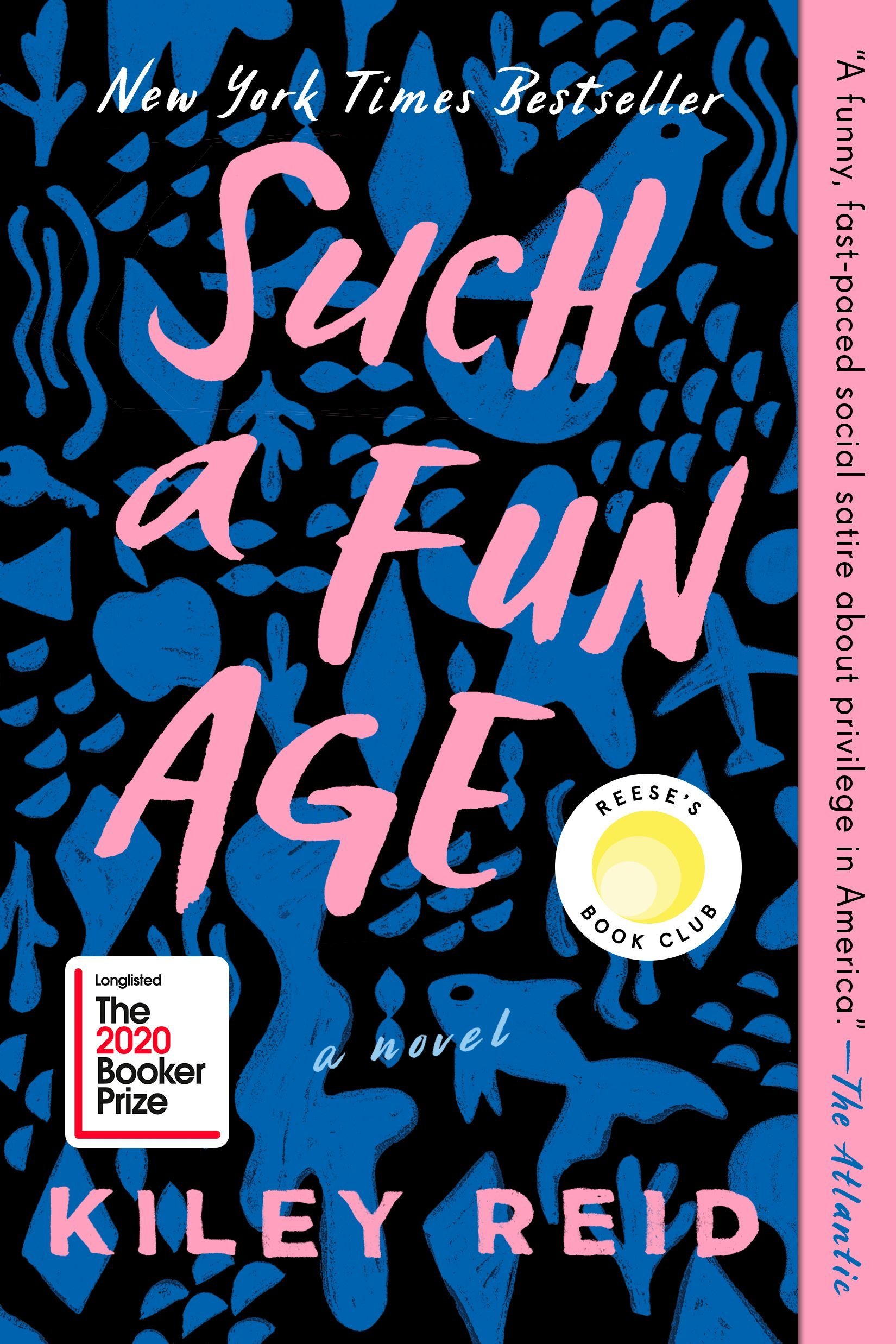SUCH A FUN AGE
BY KILEY REID
Kiley Reid’s Such a Fun Age is a sharply written, thought-provoking novel that explores the intersections of race, privilege, and identity in a way that feels both timely and timeless.
At its core, it tells the story of Emira Tucker, a 25-year-old Black woman who is navigating her uncertain post-graduation life. While babysitting for the precocious toddler Briar Chamberlain, Emira is racially profiled at a grocery store, falsely accused of kidnapping Briar, and humiliated in front of a crowd.
This incident sets the stage for a narrative that examines the power dynamics between Emira and her white employer, Alix Chamberlain.
Emira is an engaging and relatable protagonist, grappling with the existential uncertainty of her mid-twenties. Babysitting is supposed to be temporary, but she hasn’t yet figured out what she truly wants for herself or how to get there.
Her relationship with Briar is one of the book’s most touching aspects—Emira’s genuine care for the quirky, attention-starved child stands in stark contrast to the superficial, performative parenting of Alix.
Alix Chamberlain, a white influencer and “feminist entrepreneur,” is one of the most fascinating characters I’ve come across in recent fiction. After witnessing the grocery store incident, Alix is overcome with guilt and decides to make Emira her “project.” She begins to obsess over their relationship, convinced she can prove she’s a good person by championing Emira. What starts as an effort to help soon devolves into a self-serving mission, where Alix’s need for validation eclipses any real concern for Emira’s well-being.
Through Alix’s actions, Reid brilliantly critiques white guilt and liberal performativity. Alix’s behavior isn’t overtly malicious, but it’s steeped in ignorance and privilege. She objectifies Emira, treating her as a symbol of racial justice rather than as a fully realized person with her own agency. This dynamic exposes how even well-intentioned actions can perpetuate harm when they center the savior rather than the person they claim to help.
The novel also explores the broader commodification and utilization of Black people for personal validation. Emira’s experiences highlight how Black women, in particular, are often reduced to tools for others—whether it’s Alix’s need to assuage her guilt or the intentions of Kelley, Emira’s white boyfriend, who claims to support her but seems more interested in her as a symbol of his “wokeness.”
What I found especially compelling was the way Reid uses Briar, the child at the center of the story, as a subtle mirror to the adult characters. Briar’s innocence and honesty contrast with the performative, self-serving actions of those around her. Her bond with Emira feels authentic, untainted by the power dynamics and racial undertones that define the rest of the story.
At its heart, Such a Fun Age is a story about power: who has it, who wields it, and how it shapes relationships. This book is more than just a critique of racial dynamics—it’s also a deeply personal story about a young woman trying to find her place in the world. Such a Fun Age is a must-read for anyone looking to better understand the complexities of modern relationships and the unspoken biases that often lie beneath them. It’s a novel that stays with you long after you’ve turned the final page.


